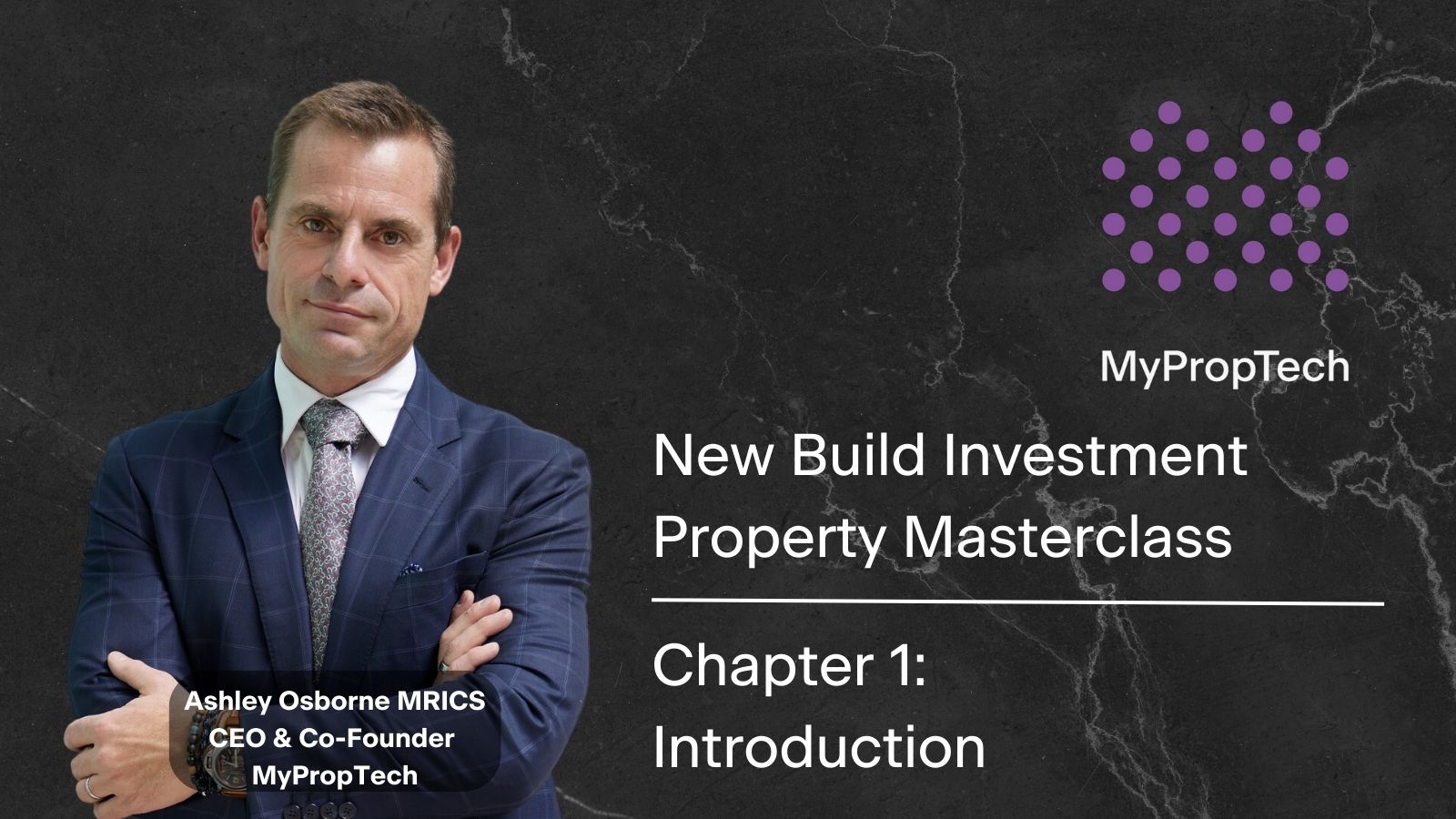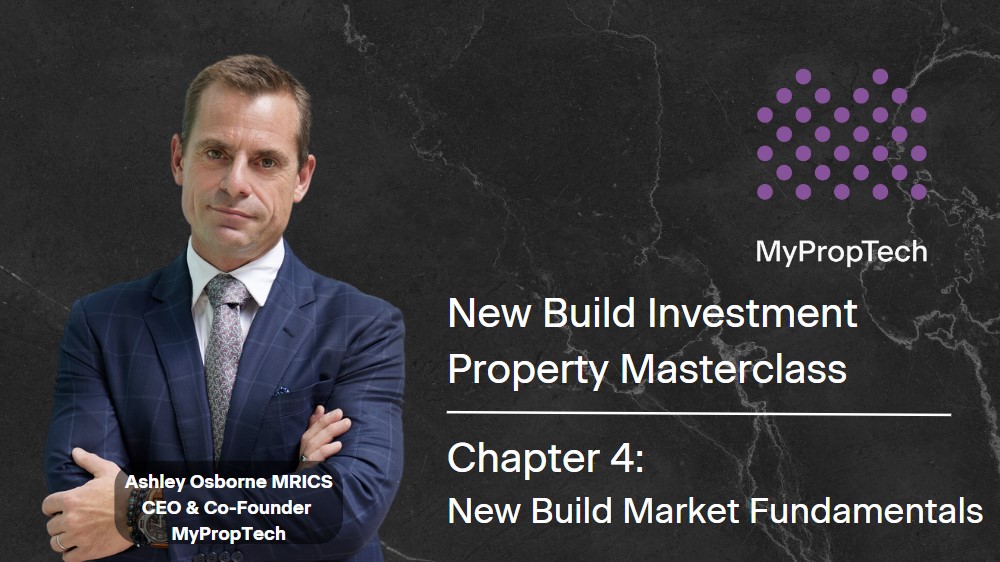New Build Investment Property Masterclass: Chapter 2 - Successful Investors
Throughout my Masterclass series, I am principally going to refer to ‘investors’. Rather than both investors and first-time buyers and/or owner occupiers. There is a simple reason for this, it's because I think both are the same.
When people buy a property to live in, it is always an investment whether they think it is or not.
Think about it. If someone is putting their capital at risk, their deposit and purchasing costs and taking out a mortgage to not pay rent, they are investing. They are doing so on the basis they think the value of the property will increase and that they would be better off paying down a mortgage rather than rent. If the situation was the other way around most people would rent instead of own.
Successful Investors
I have noticed several different things about the winners and the losers in the property market throughout my career.
It was the losers who always seemed to buy a property with the herd. They bought late in a marketing campaign or late in the market cycle. They paid 20% more for the property than the winners. They did not give deep thought to the market or what they were buying. They just followed a sense that values would always be going up.
These investors believed the ‘research’ produced by large property agencies. Have you ever noticed that this research always seems to suggest that now is an excellent time to buy? No matter how bleak things look in the economy, the research always seems to find hidden diamonds in the rough which will, it is claimed, buck the trend.
When these new buyers tried to let their new property, they soon found out that it would not rent for what they had been promised. Not only was there not a queue of merchant bankers and doctors wishing to rent their flat, but the rents were about 20% less than expected.
The investment winners were different. They were skeptical and had formed their own views. They always had a sense of reality and knew when the right time was to buy.
These investors had some key things in common:
- Access to high-quality market information: Large property agencies thrive on making market data challenging to obtain. But how can you make a sound investment decision if you don't understand what a good deal is?
- An understanding of the fatal error of paying today for tomorrow's growth: As an investor, you need to be cognisant of what today's reality is and what risk you are taking. Most importantly, you need to know how you will share in the risk/reward equation.
- An uncanny sense of the cost of excessive marketing campaigns: Market access costs are the enemy of both investors and developers. Expensive brochures and substantial marketing campaigns are excellent ways for large property agencies to increase their profile and line the pockets of those in the media industry. However, they serve no real purpose. They simply increase the cost of the property and ultimately dilute returns for investors.
- A well-thought-out plan for buying and when they would get the maximum purchasing power from their capital: Most investors do not have a plan. They buy real estate simply because it seems like a sensible thing to do – and often it is. But why are they buying, and to what end? Is it a long-term investment, or is it part of a broader plan to develop a portfolio? Are they buying for yield or capital appreciation? How should the property be owned? At what point in the development and market cycles is the right time to buy? These are essential questions that you must have the answers to before signing on the dotted line.
- Strong networks: These successful investors were in the market, and people in the property market knew who they were. That does not mean they were constantly buying – just that they had their fingers on the pulse. They understood that the most cost-effective way to purchase real estate is not via the open market. And the only way that they could avoid the open market is if the people in the market selling property knew who they were and how to contact them. The agents knew that they could go to these people early in the sales and marketing campaign (when the best deals get done) and sell to these people quickly and quietly because they knew they would buy – at the right price!
- Clever ways of buying a lot of property at once: This is the most important factor. The investment winners got their friends and networks to pool together and leverage the economies of scale they could create. As a developer or as an agent, there is nothing better than de-risking your marketing expenses by doing early deals, especially if they are large, even if this means you need to agree a considerable discount.

6 Investment Principles in New Build Property
I have developed these investor behaviours into 6 Investment Principles, which all successful investors follow in their buying and market activities:
- Have a plan: They have a clear plan for why they are purchasing a particular property and how it fits into their long-term strategy. This plan empowers them in negotiations as they understand the impact of a decision on their plan, and more importantly, when to say no to a deal.
- Get market information: They have access to high-quality market data and make decisions based on economic reality rather than the highly biased property agency research reports.
- Have a network: They have strong professional relationships and networks, they nurture them over many years, and they use them as a sounding board to sense check decisions.
- Understand mis-priced risk: They have a detailed understanding of how the development cycle works, and more importantly, where the pain points are for developers; they leverage these to create win/win deals where they will have a better share in the risk and reward equation.
- Recognise excessive market access costs: They understand the actual cost of overly expensive sales and marketing campaigns. They do not buy via these, because they realise who ultimately pays for them – the purchaser.
- Buy in bulk: They find clever ways to leverage economies of scale created through buying in bulk. This may be easier to do than you first imagine.
How this Masterclass Works
This Masterclass has five parts, each designed to take you through the off-plan property market and to help you develop your own property investment strategy. At the start of each part, I set out the key considerations. In order not to overwhelm you with information, each has its own chapter. At the end of each part, a recap crystallises the significant takeaways. The structure is as follows:
- Part 1: New-build Market Fundamentals: What are the fundamental principles behind the new-build property market? How does residential property development work?
- Part 2: Purchase Price and Costs: How are properties priced, and how do you get to the bottom of how to consider purchasing costs?
- Part 3: Purchase and Operational Considerations: What should you be thinking about when you purchase property, both today and from an operational perspective?
- Part 4A: Financial Performance: How do you measure and compare the potential financial performance of different investments?
- Part 4B: Driving Financial Performance: How do you improve the financial performance of your investment?
- Part 5: Your Property Investment Strategy: How do you bring all this information together to put together your investment strategy?
 By
By


